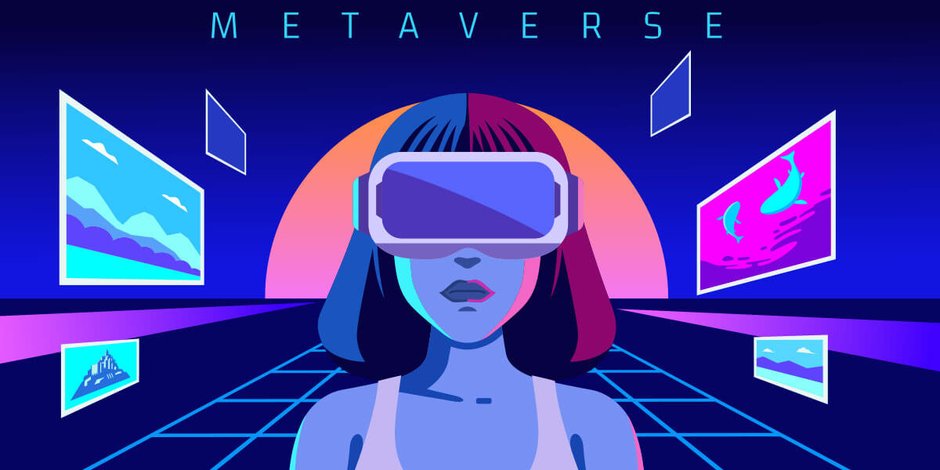31.07.2021
Title: The Metaverse Revolution: A New Economic Frontier
Introduction
Welcome to this week's article, where we explore one of the hottest topics in the world of economics – the Metaverse Revolution. Over the past few years, the concept of the metaverse has been gaining traction, and its implications for the global economy are undeniable. In this post, we will delve into what the metaverse is, its potential economic impact, opportunities, challenges, and what it means for businesses and individuals worldwide.
What is the Metaverse?
The metaverse is a virtual, shared, and interconnected universe of computer-generated spaces, where users can interact with each other and digital objects in real-time. It is essentially a convergence of augmented reality (AR), virtual reality (VR), and the internet. The metaverse enables seamless and immersive experiences, blurring the lines between the physical and digital worlds.
Companies such as Facebook (now Meta), Roblox, and Decentraland are already investing heavily in building the infrastructure for the metaverse. These platforms allow users to socialize, play, work, and conduct various activities in an entirely virtual environment.
Economic Opportunities in the Metaverse
The metaverse presents numerous economic opportunities that span across various sectors. Some key opportunities include:
- Digital Real Estate: Just like owning property in the physical world, digital real estate in the metaverse holds value. Virtual land can be bought, developed, and sold, creating a new market for virtual real estate entrepreneurs.
- E-Commerce and Retail: With the metaverse's immersive nature, businesses can set up virtual storefronts, offering unique shopping experiences for customers. This opens up new avenues for e-commerce and retail industries.
- Entertainment and Gaming: The metaverse serves as a playground for gaming and entertainment companies. It allows them to create interactive experiences, attracting millions of users and generating substantial revenue.
- Education and Training: The metaverse has the potential to revolutionize education and training. Virtual classrooms and simulations can make learning more engaging and accessible to people worldwide.
- Remote Work and Collaboration: Virtual offices and meeting spaces in the metaverse can enhance remote work and collaboration, reducing the need for physical office spaces and facilitating cross-border teamwork.
- Digital Assets and Cryptocurrencies: The metaverse allows for the creation and ownership of unique digital assets, including non-fungible tokens (NFTs). These assets can be traded and invested in, leading to a new wave of digital economies.
Challenges and Concerns
While the metaverse holds great promise, it also comes with challenges and concerns that need to be addressed:
- Accessibility and Inclusivity: As the metaverse becomes a significant part of the digital economy, it's essential to ensure that it is accessible to all individuals, regardless of their socio-economic background or physical abilities.
- Privacy and Security: With increased virtual interactions, safeguarding user data and ensuring secure transactions become paramount.
- Regulatory Frameworks: As the metaverse transcends borders, it poses regulatory challenges, requiring international cooperation to address issues such as taxation, intellectual property rights, and user protection.
- Digital Divide: The metaverse may exacerbate the digital divide, leaving behind individuals or regions without access to the necessary technology or high-speed internet.
Metaverse and Business Strategy
The emergence of the metaverse presents both opportunities and disruptions to traditional business models. To thrive in this new economic frontier, businesses need to:
- Adapt and Innovate: Companies should adapt their products and services to suit the metaverse, embracing digital transformation and innovation.
- User-Centric Approach: A user-centric approach is crucial in the metaverse, where user experiences and engagement are paramount to success.
- Partnerships and Collaborations: Businesses can explore partnerships and collaborations to leverage each other's strengths and create more immersive experiences.
- Digital Talent: Recruiting and nurturing digital talent is vital for organizations to navigate the metaverse effectively.
Conclusion
The metaverse represents an exciting frontier in the world of economics, offering a plethora of opportunities for businesses and individuals worldwide. However, realizing its full potential requires addressing various challenges, including accessibility, privacy, and regulation. As the metaverse continues to evolve, businesses and governments must work together to harness its power responsibly and inclusively. The journey into the metaverse has just begun, and its impact on our global economy will undoubtedly shape the way we live, work, and interact in the future.



